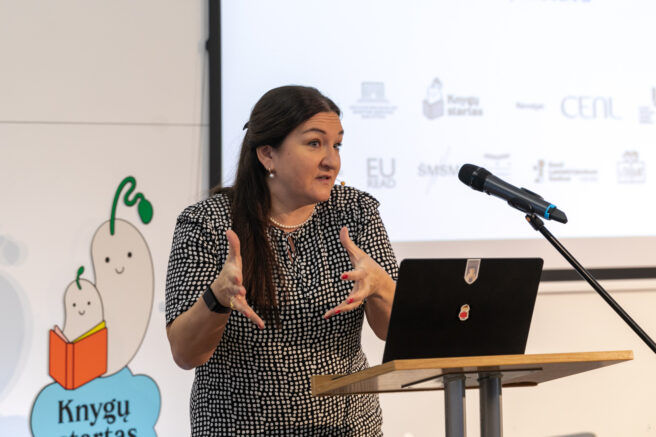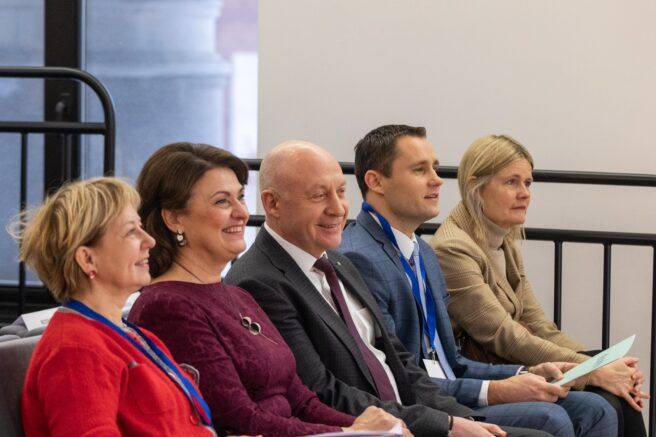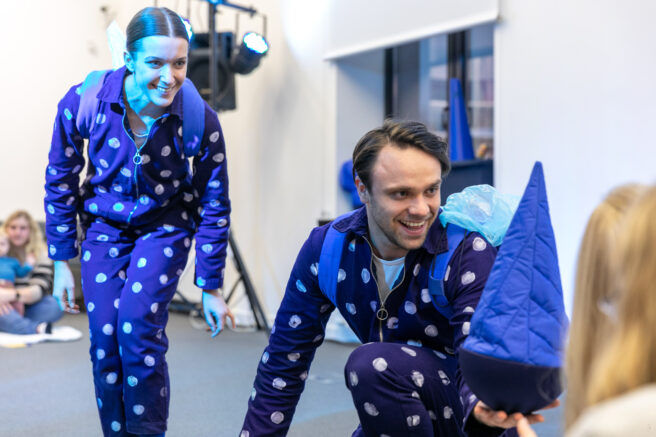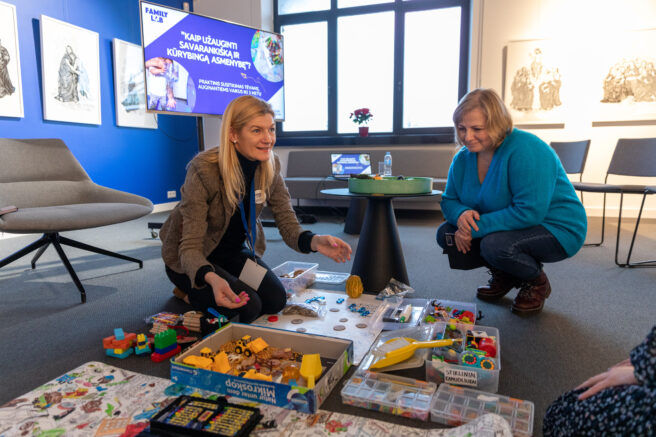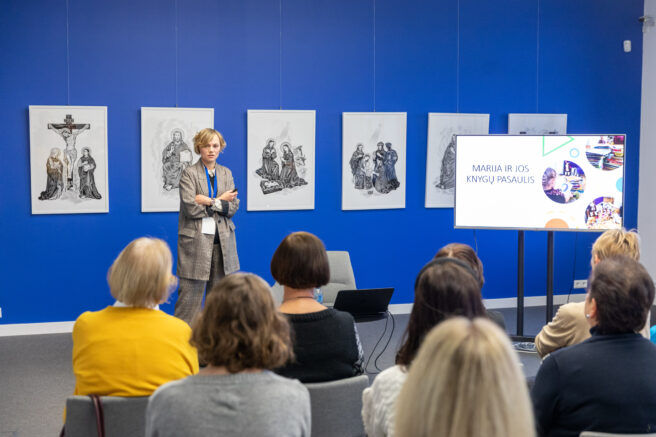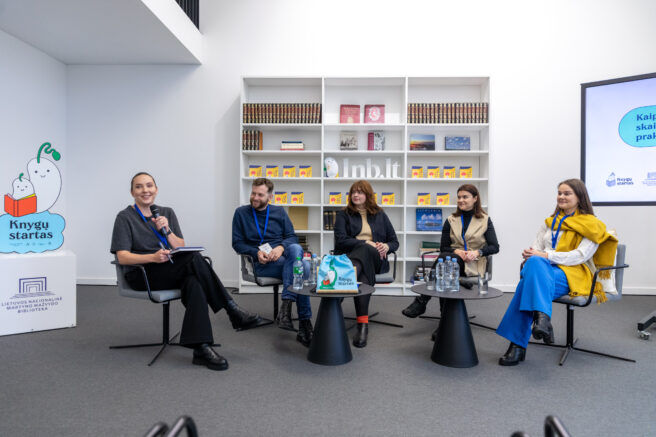Main grant recipient
Žydrė Vėtienė (Head of Public Relations Unit Communication and Marketing Department); Martynas Mažvydas (National Library of Lithuania)
Other collaborators
Date of activity
From 07/12/2022 to 08/12/2022
Aims and objectives
To organise a forum on early reading to bring together the Lithuanian and international community to professionally speak, discuss and spread the message about the benefits of early reading.
On the 7-8th of December, an international forum on promoting early reading took place at the Martynas Mažvydas National Library of Lithuania. It was attended by researchers and specialists in children’s reading and children’s literature from Lithuania and abroad. Presentations, discussions and educational activities were aimed at bringing together not only professionals, but also the community of current and future parents, and sharing best practices, advice and international research results. The importance of early reading was also highlighted by guests from the Presidential Office, the Ministries of Culture and Education, Science and Sport and UNESCO.
The first day of the Forum was dedicated to presentations by specialists in children’s reading. Sonia Guerriero, PhD, UNESCO’s Chief Specialist in Early Childhood Development and Education, presented UNESCO’s work on early childhood education. Austėja Landsbergienė, Doctor of Social and Educational Sciences, spoke about the positive impact of reading on children’s emotional and social development. Goda Baranauskaitė-Dangovienė, Director of the Children’s and Youth‘s Literature Department at the National Library, talked about the project “Book Start” (Knygų startas) and the contribution of Lithuania’s public libraries to promoting early reading. Emmi Jäkkö, Director of the Finnish Reading Centre in Helsinki, talked about early reading promotion programmes around the world and the conclusions and findings of the first Finnish programme. Ramunė Dirvanskienė, a lecturer at Vilnius University and a PhD in neuropsychology, gave an overview of the latest research on the influence of the linguistic environment and early reading on children’s neuropsychological development. Rita Dukynaitė, PhD in Social Sciences from the Ministry of Education, Science and Sport, presented the results of Lithuanian pupils in international studies on reading skills and how they correlate with certain aspects of children’s home environment. Professor Bettina Kümmerling-Meibauer, PhD in Philology at the Eberhard Karl University in Tübingen, Germany, talked about books for infants and children under the age of three that have been little studied so far, and explained how they foster the early literacy skills that are essential for visual, literary and media literacy. The session was followed by a discussion on “The Role and Impact of Libraries in the Context of Early Reading”.
The second day of the Forum featured 10 educational activities for professionals, parents and families with young children. Most of the practical activities took place at the National Library, but some were organized for remote participants as well. There was also a practical discussion for parents on “How to Raise Children that Read”. Publically active parents shared their experiences.
The Early Reading Forum featured 7 presentations, 2 debates and 10 practical activities for professionals, parents and families with young children. 295 people participated in the Forum’s live activities.
The first day of the Forum was watched remotely or viewed later via recording by 2106 participants (in Lithuanian) and 185 viewers from abroad (in English). 1233 viewers watched the practical discussion among parents remotely.
Based on the insights provided by the experts at the Forum, a commissioned article was written for a popular news portal on the benefits of early reading. More than 3000 readers have already viewed it. It has also been published in the professional magazine for the library community, “Among Books” (Tarp knygų).
The Forum received significant attention from policy makers and positive feedback from participants. As it approached and progressed, we felt a great deal of interest on social media. One of the Forum’s target audiences is mothers with young children. Our message was shared both by individual mothers and by Instagram profiles with their own communities, which talk about the daily life of mothers with young children, the challenges, joys and education of raising young children. The fact that our message on early reading was shared on these specialized Instagram accounts means that we reached a significant number of mothers of young children. Parenting is all about community and mothers of young children tend to look for answers to their questions in the experiences of other mothers, and not in scientific literature or by consulting with experts. For many, Instagram accounts dedicated to parenting become the first source of information and a trustworthy advisor when faced with their own parenting and educational challenges.
https://konferencijos.lnb.lt/ankstyvojo-skaitymo-skatinimo-forumas/en/
https://www.youtube.com/watch?v=lxnglhTd0lI
https://www.youtube.com/watch?v=11lUr-Ph_Ow&t=24569s

